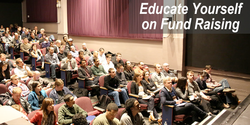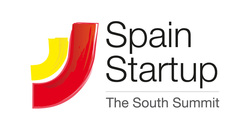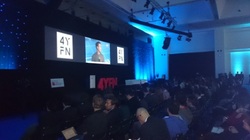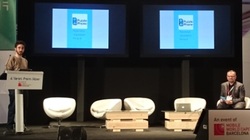|
It is very typical to measure mature of startups ecosystems in terms of new startups, growing startups, investors, investments, exits, etc. and it makes sense as cities use these statistics in the best possible way to communicate their economic growth at high level and to attract other relevant people, investors, big companies, more entrepreneurs and other stakeholders. These indicators are however the result of many smaller activities present in a startup ecosystem that contribute to these higher level results - as any startup ecosystem is the sum of multiple variables of an unbalanced equation inherent to the interactions of the startup ecosystem itself. So, as you can figure out, you need much information to talk about matureness of startups ecosystems. But most of all, you need a good understanding and analysis of your startup ecosystem at different levels and mapping it usually is a good starting point to set up new strategies and achieve a better economic development. But the thing is that properly mapping a startup ecosystem is more than just to create a good map to show who is who in your city or region. It is crucial to work at different levels and in more detail:
We truly believe everyone should work on this model, as it makes the investments to growth and innovation truly visible and measurable - as only the things that can be measured can be improved. And the faster the feedback loop, the faster things can be improved. Actually we are working with this model with few key cities like Helsinki at ecosystem level and even more broadly with independent organizations and we are clearly seeing that it is possible to build a vibrant startup ecosystem in a city in three to five years, what is half or less, compared to known average. Future entrepreneurs and current startups deserve this new scenario that we at Startup Commons are creating and we encourage others to contribute and develop innovation, better, faster and with less resources. Are you a consultant or an entrepreneur? - Learn more about Growth Academy Online Training & Certification Programs Download our startup booklet and watch our videos to learn more about our framework to help startups to grow without "reinventing the wheel" and without wasting lot of time trying to connect the dots. The framework is based on the startup development phases and aims to remove the highest universal risks on the startup journey. This is an originally posted by Óscar Ramírez, CEO Startup Commons. You are free to re-edit and repost this in your own blog or other use under Creative Commons Attribution 3.0 License terms, by giving credit with a link to www.startupcommons.org and the original post
 If you’re an early-stage startup that’s looking for a little help to get your business off of the ground, look no further than the recently established Founders Space accelerator and incubator. Founders Space, which was just opened a week ago, has already made it a point to provide some of the best perks and opportunities for its participants, including seminars, networking events, pitch competitions, and access to amazing set of experienced advisors, VCs, and angel investors. In San Francisco, startup accelerators are fairly easy to come by – just Google it. However, few offer their participants the comprehensive package that Founders Space has put together. Thanks to founders Steve Hoffman and Murray Newlands, Founders Space has managed to assemble an impressive experience for early-stage companies that focuses on the development of their brand, their product, and achieving their business objectives.
The way it works is really quite simple, too. Startups can apply to join Founders Space, and once they’re accepted, they will go through an intensive 4-week “Boot Camp” where they will attend sessions taught by experienced industry professionals, along with networking events where they will be introduced to relevant VCs and angel investors. “We are looking for companies that we truly believe in to join Founders Space because we have a dedicated and experience group of advisors and investors who are ready to take on the next big thing,” Steve Hoffman said. “Our goal is to teach these early-stage companies everything they need to know and introduce them to the right people to help them get things going and become the next major enterprise.” For early-stage startups, the Founders Space location couldn’t be in a better location, either. The co-working space is situated in the heart of SF’s tech industry at SOMA Central, the same building where Instagram, Twilio, and a handful of other successful companies originally got their start. “We’ve got a great co-working space in SOMA that encourages and inspires collaboration, but also enables our startups to have the meetings and business events that they need to,” said Murray Newlands. “Once we start our accelerator program, we plan on having regular networking events and seminars to give our startups the opportunities to learn and connect with other people in the industry.” If you’re interested in learning more about Founders Space or applying for their program, be sure to visit their website for more information. ___________________________________________________________________________________________ This is an edited version of an post originally posted at yourstory.com, by Chandan Raj, CTO at YourStory. Apart from tech -learning and sharing about founders, innovators and changemakers psyche and natural system evolution. You are free to re-edit and repost this in your own blog or other use under Creative Commons Attribution 3.0 License terms, by giving credit with a link to www.startupcommons.org and the original post. After more than fifteen years selling to Latin American markets, including five years living in Canada, Myriam Lazarte began organizing LatAm Conference StartUps as part of a successful startup ecosystem. Her job is not just about translating words or language. It’s about translating culture: business attitudes, customs, ways of thinking.  Miryam Lazarte Miryam Lazarte Thanks for joining us Miryam. Could you start by telling us why you took the challenge of launching the LatAm Startup Conference? Because a wave of startups is coming in Latin America, and I want to see them succeed. They don't have to move to North America to go global -- not unless they want to. LatAm is booming right now and I want to see Canadian investors come down and realize they've got to write some cheques if they want to take advantage of this wave. What outcomes do you expect for this first edition of LatAm Startups Conference? We will measure the success of this Conference by how many startups get the funding they need to scale and go global. I know that you appreciate so much how Canada is developing its startup ecosystem. Are you thinking of copy this model into Latam? If so, why do you think it will get success? Every country must innovate its own startup model based on local conditions. It would be foolish to try to impose a foreign model in LatAm -- it wouldn't work. That said, there is a great deal LatAm startups can learn from successful Canadian entrepreneurs and investors. The LatAm Startups Conference will feature two days of talks by Canadian thought leaders in this area. It's an opportunity for startups to learn more about how to scale their businesses. It's also an opportunity for North American VC and angel investors to discover what great investment opportunities LatAm now offers. For startups specifically, what would you say are the biggest strengths of Latam? Technology is increasingly democratic and global. The cost of entry to write code, to prototype the next breakthrough in green-tech, or clean-tech, or bio-tech, is much, much cheaper than it was even five years ago. LatAm inventors, coders, tinkers, and entrepreneurs can now create startups with relatively little seed capital. World-changing ideas will come from Latin America. I tell investors: Get a head start and discover LatAm now before everyone else does. In what areas would you say Latam is well developed?
Latin America is booming. The region is playing catch-up with the developed world, but it won't be more than 5-10 years before the major players in LatAm take their seats at the table with Europe and North America. VC and angel investors curious about this phenomenon should consider attending the LatAm Startups Conference. Where is the highest growth expected in the nearby future? Software. Green-tech. Clean-tech. Bio-tech. What are some of the major organizations driving the startup community Startup Chile, of course. Startup Brasil. Also privately-funded incubators/accelerators like NXTP Labs in Argentina. Wayra, too. For whom does Latam offer great opportunities at the moment? Latin America is producing tons of great startups, world-changing innovations that go nowhere fast because they lack the capital to do so. Angel investors would be well-advised to add a LatAm startup or two to their portfolio. Are there any people / skills specifically that are wanted in Latam? Capital! Bring us your tired, your weary, your dollars. We will put them to good use, and give you great ROI in return! If there was one thing you could say to entrepreneurs from other corners of the world, what would it be? You don't have to be based in Silicon Valley to succeed.  Southern of Europe is in luck what comes to startups. Spain Startup Summit is coming again with a different name “Spain Startup. The South Summit” but with the big conviction of attracting the best talent from Mediterranean and, for first time in this edition, Latin America in order they meet the leading investors and most innovative companies from around the world. We are used to hearing that great startups in Europe come from nordic countries, United Kingdom or Germany and the thing is that Spain Startup organization is discovering amazing startups in countries such as Portugal or Spain, where the need to create growth economic is really important to overcome the current crisis: “It is amazing the quality of startups here in Marbella and how Lisbon Startup Ecosystem is growing” said Alex Barrera, co-founder & editor of Tech.eu, who is presenting South Summit event in different places with Sofia Benjumea, co-founder of Spain Startup Summit. Last edition took place in Madrid on 9-11th October with a great impact in terms of attendants (4000), companies participating (+30), investors (more than 350 from 17 countries) and big corporations and now Spain Startup. The South Summit has just launched a new competition again in Madrid on 8-10th October where they expect to improve the latest results and consolidate their position as the leading startup conference in the South of Europe. The application process is open and the registration will be open until the 18th of June. We at Startup Commons are really happy to see how initiatives like Spain Startup share with us the same startup ecosystem approach, building a platform to make more effective and easier connections and access to global resources, regardless of where you are. This is the golden age of design, and startups as well as established corporate giants need to excel in the user experience to succeed in the 21st century. Bangalore recently hosted a superb masterclass and conference on user experience, UX 2014, organised by Peepal Design and the global UX Alliance. Experts from the US, Ireland, India, South Africa, Brazil, Switzerland, Japan, Australia, France, Canada, Poland and Italy addressed over 300 delegates at the event. Here are my Top 15 takeaways from 15 of the experts who presented at UX 2014. 1. Align UX with business metrics 2. Mobile is the centrepiece 3. Include UX approaches in project management certification 4. Address current needs but also anticipate future needs 5. Use visualisation techniques to map UX impacts 6. Target the UX message to a broader audience 7. Focus on business goals and not just digital content 8. UX helps you stay competitive 9. Embed UX in transactional activities 10. UX applies to digital and non-digital domains 11. Test, learn, test, learn 12. UX is about relationships 13. Localise, localise, localise 14. Blend art and science in UX 15. Tackle the RX to bring UX into rural India In sum, the conference and masterclasses delivered a wealth of learnings to the attendees, even making it difficult for them to choose between the three parallel tracks! The conference threw up a fascinating range of questions which can be addressed through research publications and at future such events. How can resource-strapped startups not lose out on the UX edge? What approaches work best in dealing with the ‘politics’ of UX in an organisation, when not all stakeholders sees eye to eye on the solution? What term works best to describe UX when users are no longer just users but co-creators of products and services? Read the whole article in yourstory.com This is an edited version of an post originally posted at yourstory.com, by Madanmohan Rao. You are free to re-edit and repost this in your own blog or other use under Creative Commons Attribution 3.0 License terms, by giving credit with a link to www.startupcommons.org and the original post.
 Photo Credit: Pivot East Photo Credit: Pivot East Africa Startup Ecosystem in on fire thanks to Pivot East, one of the most prestigious mobile startup competitions and conferences held annually since 2011. PIVOT East aims to catalyze the growth of mobile startups, so as to amplify and consolidate the gains of East Africa’s Mobile developer and entrepreneurship ecosystem. The PIVOT EAST competition is a six month long program of targeted educational workshops for mobile entrepreneurs and business advisory session and It culminates in the top 25 mobile startups pitching to investors and partners at a finalists conference. The competition has five categories with each having five finalists pitching to a rich audience of Investors, Development Partners, Government Representatives, Telecoms Operators and other key industry players from East Africa and beyond. The categories include:
The 2013 competition attracted 130 startups applications from Across East Africa, with 88 applications from Kenya, 30 from Uganda, 10 from Tanzania, one from Rwanda and one from Ethiopia in the Finance, Entertainment, Society, Utility and Enterprise categories. Five category winners were announces, one from each category during the gala dinner. Expectations for this year are very high and that’s the reason why they have partnered with 8 tech hubs from across the region who will play a key role in Mobilizing startups and developers in its communities to submit entries to the PIVOT East startups platform and conduct outreaches and workshops on our behalf.The hubs include Outbox (Uganda), Hive Colab (Uganda), KINU (Tanzania), Buni (Tanzania), kLab (Rwanda), iceaddis (Ethiopia), iBiz Africa (Kenya) and C4DLab (Kenya). The call for applications for Pivot East 2014 Competition has been opened up until 11th April 2014 where 25 finalists in the competition will receive training, coaching and mentorship on how to arrive at repeatable and scalable business models. The finalists will also receive training and coaching on how to pitch to investor. Stay tuned to the whole competition and discover amazing startups in Nairobi. We are also preparing a next interview with the Producer for Pivot East 2013, Moses Kemibaro and an informal talk with one of the participating startups last year.  Photo Credit: Startup Commons Photo Credit: Startup Commons First time for 4YFN, a satellite event created by Mobile World Capital Barcelona that provided last February a great experience for key stakeholders of startups ecosystems and mainly focused on helping entrepreneurs get to the next level. I have to say that I felt as a boy in amusement park because many cool startups and important organizations that are supporting entrepreneurship were there and it is always a great chance to stay tuned to what others are doing. In general, It was a good format where you had multiple choices to take the most from the event: talks, workshops, conferences, pitches, showrooms, etc. and where every corner was a suitable place to networking and business cards were the main currency, regardless of the moment or your profile.  Photo Credit: Startup Commons Photo Credit: Startup Commons A startup ecosystem is in fact a social capital and an effective networking and buzzing is key to share and spread experience, knowledge, talent and many other resources and to help startups to get to the next level. In this direction, it would be fantastic if we take the most from the power of crowd in events like 4YFN. I could attend to different pitches from startups and in general it was an unidirectional event with a big lack of participation from the attendees. It was a pity because each one of us could have been mentors to every single startup, providing them feedback about customer segments, value proposition, pitching, etc. that startups could analyze later in order to learn and take next steps like getting in contact with each one of them, making more effective the post-event. Maybe, there would be people who felt shame to speak to an audience or maybe didn’t understand the project or maybe it was just a matter of disinterest.  Photo Credit: Startup Commons Photo Credit: Startup Commons In any case, we and organizers should facilitate for next events a better bidirectional communication (CrowdPitching) and boost an important activity that you can find in the heart of any startup ecosystem: the conversation and the feedback among different members. Doing this we will help startups to find the right resources for them for every single stage in which they are and with the same spirit as Lars Buch from StartupBootCamp said about accelerators: “Accelerators have to help startups not to make many mistakes” Great work 4YFN and see you next year! This is an originally posted by Óscar Ramírez. You are free to re-edit and repost this in your own blog or other use under Creative Commons Attribution 3.0 License terms, by giving credit with a link to www.startupcommons.org and the original post
Any startup ecosystem in the world needs a constant flow of people coming and going in order to refresh the ecosystem with new ideas, startups, investors, people who upgrade their skills, multiple resources, etc. That’s key to keep it alive.
Alex Farcet seems to have pretty clear this flavour through StartupBootCamp accelerator, focused on Europe not only fostering entrepreneurship and supporting global startups but also building a new breed of angel investor with AngelsBootCamp, a two-day workshop to train executives, entrepreneurs and finance professionals in interesting topics like due diligence, legal trends, portfolio management or investments with a practical approach, interacting with experienced investors. In a nutshell, the first great approach that you need if you feel attracted by startup world but you have no experience, or if you are a successful entrepreneur with some money in the bank and watching and mentoring projects and need the right skills to start support them from the investment perspective. The first AngelsBootcamp took place last year in Berlin on 7-8 June and now StartupBootCamps has just launched a new AngelsBootCamp again in Berlin on 17-18 March. From Startup Commons perspective, we encourage and support this kind of events that aim to build a better scenario for entrepreneurs in Europe and aligned with our mission to develop a global startup ecosystem more accessible, transparent and efficient for all stakeholders in the startup ecosystems. |
Supporting startup ecosystem development, from entrepreneurship education, to consulting to digital infrastructure for connecting, measuring and international benchmarking.
Subscribe for updates
Startup ecosystem development updates with news, tips and case studies from cities around the world. Join Us?Are you interested to join our global venture to help develop startup ecosystems around the world?
Learn more... Archives
December 2023
Categories
All
|
- Startup Commons
- Business Creators
-
Support Providers
- About Support Providers
- Learn About Startup Ecosystem
- Startup Development Phases
- Providing Support Functions
- Innovation Entrepreneurship Education
- Innovation Entrepreneurship Curriculum
- Growth Academy eLearning Platform
- Certified Trainers
- Become Growth Academy Provider In Your Ecosystem
- Growth Academy Training On-Site By Startup Commons
-
Ecosystem Development
- About Ecosystem Developers
- What Is Startup Ecosystem
- Ecosystem Development
- Ecosystem Development Academy eLearning Platform
- Subscribe to Support Membership
- Ecosystem Operators
- Development Funding
- For Development Financiers
- Startup Ecosystem Maturity
- Case Studies
- Submit Marketplace App Challenge
- Become Ecosystem Operator
- Digital Transformation
- Contact Us
- Startup Commons
- Business Creators
-
Support Providers
- About Support Providers
- Learn About Startup Ecosystem
- Startup Development Phases
- Providing Support Functions
- Innovation Entrepreneurship Education
- Innovation Entrepreneurship Curriculum
- Growth Academy eLearning Platform
- Certified Trainers
- Become Growth Academy Provider In Your Ecosystem
- Growth Academy Training On-Site By Startup Commons
-
Ecosystem Development
- About Ecosystem Developers
- What Is Startup Ecosystem
- Ecosystem Development
- Ecosystem Development Academy eLearning Platform
- Subscribe to Support Membership
- Ecosystem Operators
- Development Funding
- For Development Financiers
- Startup Ecosystem Maturity
- Case Studies
- Submit Marketplace App Challenge
- Become Ecosystem Operator
- Digital Transformation
- Contact Us




 RSS Feed
RSS Feed

